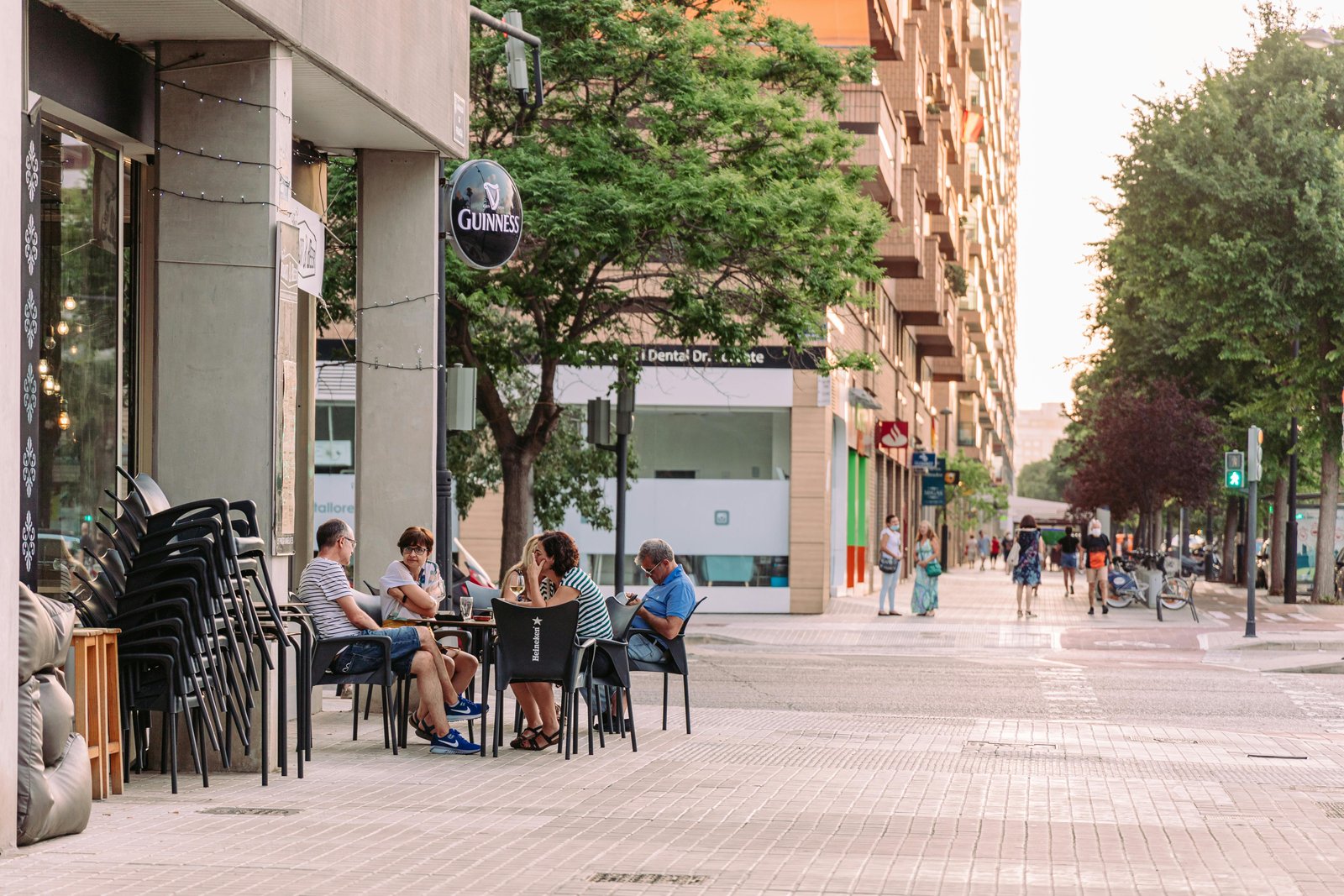TL;DR:
- Buying local boosts local economies and job creation.
- Supports local businesses, increasing tax revenues and entrepreneurship.
- Reduces carbon emissions by shortening transport distances.
- Minimizes packaging waste and pollution.
- Strengthens community ties and promotes volunteerism.
- Preserves cultural heritage and traditional crafts.
- Enhances food security by reducing dependency on global supply chains.
- Provides health benefits from fresh, locally-sourced produce, including higher nutrient retention and lower contamination risks.
- Encourages sustainable sourcing and seasonal eating, promoting environmental and community well-being.
Ever wondered if buying local really makes a difference or if it’s just another trend? Spoiler alert: it matters—a lot. Supporting local businesses not only boosts regional economic growth but also strengthens community ties, reduces pollution from transportation, and helps preserve local culture.
By keeping money close to home, buying locally aids job creation and empowers small enterprises. Let’s dive into why buying local is more than just a transaction—it’s a powerful, sustainable choice.
Economic Benefits of Buying Local and Boosting Sustainability
Buying local products is key to boosting economic sustainability. It strengthens local economies. When you purchase locally-sourced goods, you keep money within your community. This circulation fosters economic growth and stability. Local spending supports businesses, which can reinvest in the community. This cycle not only preserves economic health but also builds community pride and resilience.
Choosing local products also creates jobs. By supporting local businesses, consumers encourage hiring within the community. This leads to job opportunities and can lower unemployment rates. Thriving local businesses mean more jobs for residents, boosting the regional economy.
- Enhances local job creation
- Increases local tax revenues
- Promotes community investment
- Encourages entrepreneurship
- Supports local business expansion
Supporting small businesses is vital for regional economic growth. Small businesses face challenges competing with large corporations. However, local support helps them thrive. Their success promotes entrepreneurship and innovation, fueling more economic development. As they expand, small businesses significantly contribute to the regional economy. This ensures a diverse and dynamic marketplace that benefits everyone.
Environmental Impact of Buying Local and Carbon Footprint Reduction

Reducing transportation emissions helps cut down our carbon footprint. Buying local achieves this by shortening delivery distances. Shorter routes mean fewer trucks, ships, and planes emitting greenhouse gases. Thus, local sourcing significantly minimizes environmental impacts. Buying locally-grown food lets consumers lower emissions and fight climate change. Cutting transportation emissions is a practical step towards a sustainable future.
Buying local also reduces pollution. With shorter travel distances, there’s less need for extensive packaging that’s non-biodegradable. Less packaging means less landfill waste and lower pollution from production. Local vendors often use sustainable practices, reducing their ecological footprint. Supporting local producers helps decrease air and water pollution, leading to a healthier environment. This choice bolsters broader ecological sustainability efforts.
| Environmental Benefit | Explanation |
|---|---|
| Reduced Greenhouse Gas Emissions | Shorter transportation distances lower carbon emissions. |
| Less Packaging Waste | Locally sourced products need minimal packaging, reducing landfill waste. |
| Lower Air and Water Pollution | Sustainable local practices decrease community pollution levels. |
Social Benefits of Buying Local and Community Engagement
Buying local strengthens community relationships and boosts engagement. Interacting with local farmers connects consumers with their food origins. It promotes trust and transparency. This engagement allows learning about sustainable practices, encouraging eco-friendly habits. Supporting local businesses means investing in community sustainability. This builds a foundation for community building, with everyone working together towards common goals.
- Strengthens community ties
- Encourages local volunteerism
- Promotes sustainable practices
- Enhances civic pride
Social responsibility and community initiatives are essential in buying local. Supporting local farmers and businesses benefits the economy and fosters community involvement. Local purchasing encourages volunteerism and community projects, improving living conditions. By choosing local, individuals contribute to social and economic sustainability. This reinforces civic pride and shared responsibility.
Cultural Preservation Through Buying Local

Buying local helps preserve cultural heritage by supporting traditional crafts. When you choose local businesses, you aid in maintaining unique cultural practices. Local artisans rely on community support to sustain their trade. This ensures skills passed down through generations aren’t lost. By investing in local products, you help keep cultural traditions alive, enriching community diversity.
Heritage food is crucial for cultural preservation. Local purchasing promotes culturally significant foods not readily found in mainstream markets. These foods represent culinary traditions and unique flavors. Supporting local food producers helps maintain these traditions, fostering community pride. It ensures the rich tapestry of local culture is celebrated and shared with future generations.
Food Security and Health Benefits of Buying Local
How does buying local enhance food security? By reducing dependency on global supply chains. Local food systems are less vulnerable to disruptions. This ensures a steady supply of essentials. Global supply chains face risks like political instability or natural disasters. Buying local keeps communities less dependent on distant sources, securing food access even in tough times.
Are there health benefits to eating fresh, local produce? Yes! Fresh produce, harvested nearby, requires fewer preservatives. This preserves taste and nutritional value. Local produce travels short distances, needing less storage or chemical treatment than imports. This means consumers enjoy healthier, naturally nutritious food.
- Increased nutrient retention in fresh produce
- Lower risk of food contamination
- Reduced exposure to preservatives and additives
Why are sustainable sourcing and seasonal eating important? They benefit the environment and community well-being. Sustainable sourcing means growing food in ways that protect resources and reduce emissions. Seasonal eating supports this by choosing foods that are naturally available. This reduces artificial growing needs. Together, they promote a lifestyle valuing health, sustainability, and local support, making buying local a smart choice.
Final Words
Choosing to buy local is a powerful way to support your community while being sustainable. Economically, it helps create jobs, boosts local business growth, and keeps money circulating close to home. Environmentally, it reduces transportation emissions and packaging waste, making it a greener choice. Socially, it strengthens community ties, promotes civic pride, and preserves cultural traditions. Buying local also helps improve food security and provides fresher, healthier options.
By making mindful choices and buying local, you’re not only benefiting yourself—you’re investing in the long-term sustainability of your community.
FAQ
Why is buying local food good for the environment?
Buying local reduces transportation emissions, cutting down on pollution. This helps protect the planet and contributes to a healthier environment.
How does buying local help the economy?
It keeps money in the community, creates jobs, and helps small businesses thrive, fostering local economic growth.
How does buying local reduce the carbon footprint?
Shorter transportation distances mean fewer greenhouse gases are released, shrinking the carbon footprint.
What sustainable practices do local farmers implement?
Many local farmers use sustainable methods such as crop rotation, organic farming, and water conservation, all of which protect the environment.
Why is buying local important?
Buying local supports your community, reduces environmental impact, and helps preserve local culture and traditions.

